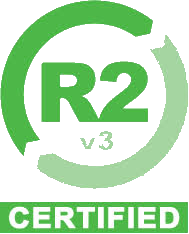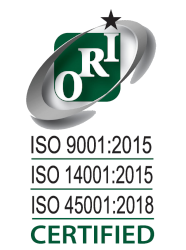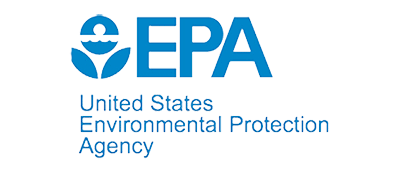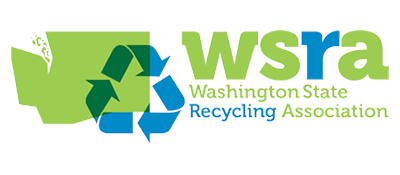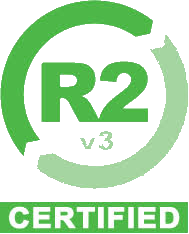Published on November 9, 2021, Updated on December 22, 2021
Medical Equipment Recycling Service in Washington
Medicine and modern healthcare in Washington have actually altered the course of human history and the way people live their lives. Medicine has improved mankind for ages, whether by saving lives or prolonging them, by making us healthier, feeling better, or eliminating diseases that were not anticipated at the time of their discovery. Immunization, antibiotics, and improved sanitation are just a few of the medical breakthroughs that have occurred throughout the course of history. Technology, in the other hand, has accelerated the process of developing new medical discoveries and talents. It’s simple to see how advancements in health and medicine have impacted the lives of virtually everyone on the world, whether it’s through technology that allows us to see deep into the body or medications that help people suffering from chronic conditions live longer lives.
Some of the remarkable advances that technology has brought to healthcare in Washington State include the ability to conduct organ transplants, look inside the body without opening it using imaging techniques such as x-rays, CT scans, MRI’s, or ultrasound, save lives anywhere with portable defibrillators and breathing machines, grow human cells in laboratories, and control artificial limbs with the mind. Medical equipment, supplies, and devices of the contemporary era have aided doctors and medical students in their vast study to better human health problems and obstacles. These items have grown increasingly important in achieving their objectives.
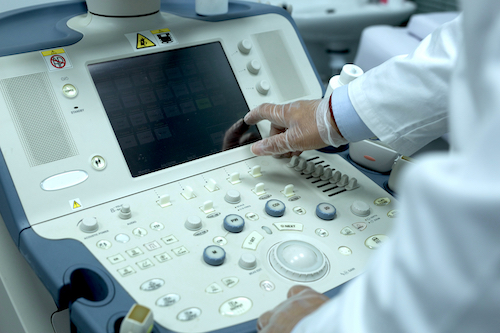
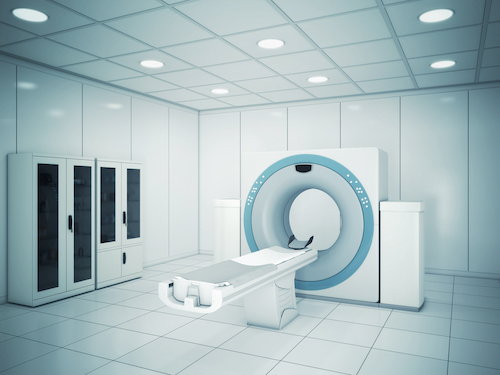
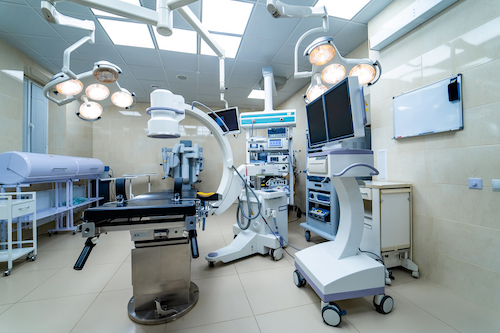
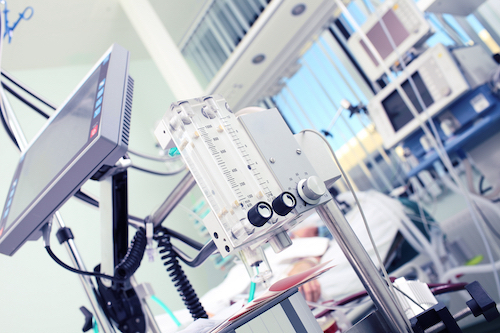
Healthcare Technology and Medical Devices Washington State
All medical institutions in Washington, including hospitals, medical schools, clinics, dental offices, ophthalmology practices, med spa facilities, labs, nursing homes, and other medical facilities, rely heavily on technology and medical electronics. Doctors and other medical professionals treat patients with the use of advanced technological devices. New technology is sought after by every modern medical institution due to the fact that these pieces of equipment are more precise and efficient. Increasing numbers of medical institutions are utilizing technology-assisted equipment, which increases the demand for their recycling at an alarming rate.
When it comes to recycling, healthcare and medical gadgets require a specific level of care, just as other types of IT equipment do. Those gadgets contain potentially dangerous chemicals as well as sensitive information. The disposal of medical equipment in a landfill is not the best solution. Some medical electronics are required to include extensive support documentation on recycled equipment, such as unit serial numbers or certifications of destruction, as a result of state or federal legislation.
Because of technological advancements in all electronic equipment, especially computers, their usable life is continuously being reduced. As a result, a complex and quickly expanding waste stream is being generated. In addition to lead in cathode ray tube (CRT) monitors, chlorinated plastics in cable wiring, brominated flame retardants in circuit boards, and mercury in liquid crystal displays, other types of biomedical equipment contain a variety of hazardous constituents, ranging from lead in cathode ray tube (CRT) monitors to mercury in liquid crystal displays. One-third of the lead detected in municipal garbage comes from CRTs, which are the most common type of television. When electronic equipment is improperly managed or disposed of, it poses a major hazard to both public health and the environment. Managing electronic equipment in Washington State in a way that keeps costs under control, protects data, and ensures compliance with federal, state, and local requirements is essential for healthcare institutions.
Medical Data Security is Critical
While the data of nearly every business is highly sensitive, nowhere is it more important than in the field of health, where secrecy is absolutely vital. When it comes to securing patient information, healthcare professionals must adhere to a number of strict rules. All while maintaining compliance with federal rules, they have a responsibility to secure E-PHI (electronic protected health information), patient identification, and payment method information.
- Health Insurance Portability and Accountability Act (HIPAA)
- Health Information Technology for Economic and Clinical Health Act (HITECH)
- Sarbanes-Oxley Act
- Gramm-Leach-Bliley Act
- FACTA Disposal Rule
- Patriot Act of 2002
- PCI Data Security Standard
- Identity Theft and Assumption Deterrence Act
Protecting patient information is a problem that healthcare professionals must remain on top of because of the constantly changing nature of technology and devices that communicate E-PHI via networks. Hackers attack hospitals on a regular basis in search of personally identifiable information to resell on the black market. According to one example, Chinese hackers stole 4.5 million patient information in 2014 in order to commit medical and financial fraud. Additionally, according to a Mayo Clinic research, which was covered by Bloomberg, all types of medical equipment evaluated in the study were found to be extremely vulnerable to hacking, data infiltration, and extraction. Only a small number of healthcare companies or medical institutions are dedicated to data deletion and information technology recycling. Mishandling of e-waste and medical data, on the other hand, might result in severe penalties if the organization does not adhere to HIPAA and other regulations meant to preserve the information.
It is critical to work with a qualified IT disposal provider to ensure that all data is completely destroyed and that medical equipment is appropriately recycled.
Choosing the correct Medical Equipment Disposition Company
It is critical to select the most qualified data deletion and electronic recycling company. Most suppliers are not accustomed to working with sophisticated medical devices, so make certain that the ones you choose are knowledgeable in their field.
Examine their qualifications to ensure that they will handle medical equipment in a safe and responsible manner. The R2 certification as well as the OHSAS 18000 certification are typically strong indicators of the company’s dependability. Protecting the chain of custody reduces the risks associated with medical organizations…. 1 Green Planet employs the most up-to-date technology available to erase, cleanse, and destroy medical e-waste, as well as complete services to assist companies in implementing safe and cost-effective recycling and data management policy near Washington State.
Because the majority of medical devices include hazardous chemicals, it is critical that the equipment be disposed of in an environmentally acceptable manner. As previously stated, the R2 accreditation is an indication that medical products will be handled in an ecologically friendly manner. Because the majority of medical devices include hazardous chemicals, it is critical that the equipment be disposed of in an environmentally acceptable manner. As previously stated, the R2 accreditation is an indication that medical products will be handled in an ecologically friendly manner.
Medical Equipment disposal at facilities is provided by 1 Green Planet, which is R2 certified. 1 Green Planet facilities are monitored by closed-circuit television and are certified to R2:2013, ISO:14001, and ISO 45001:2018 standards, as well as to HIPPA, PCI DSS, PIPEDA, NIST, GLBA, FACTA, and the CJIS standards.
Medical Equipment Disposal with 1 Green Planet is completely safe, secure, and certified to the highest industry standards of safety, security, and compliance. Managing retired assets for medical suppliers, hospitals and clinics, dentists and optometrists, medical schools, and other healthcare institutions in a responsible, efficient, and secure manner is a priority for 1 Green Planet. 1 Green Planet guarantees that your company’s brand is protected, that regulations are followed, and that thorough reports are provided. 1 Green Planet places a high value on customer service, and each client is allocated a personal account manager who will help them throughout the whole process, including the preparation of thorough Certificates of Destruction reports. Read about us.
Some Types of Medical Equipment that 1 Green Planet Manages
- Patient Monitors
- Infusion pumps
- Ventilators
- Regulators
- Otoscopes
- x-ray machines
- EKG/ECG modules
- Defibrillators
- Aspirators
- endoscopy equipment
- laparoscopy equipment
- probes
- surgical tools
- surgical tables
- surgical lasers
- surgical microscopes
- Balloon Pump
- Phacoemulsifiers
- exam chairs
- ultrasound machines
- ultrasound probes
- Electric Stimulation Units
- EDU (Electronic Surgical Unit)
- Crash Carts
- Stretchers
- Gurneys
- Pulse Oximeters
- Skin Treatment Lasers
- Microdermabrasion
- Endermologie
- autoclaves
- sterilizers
- gas chromatographs
- HPLC equipment
- Spectrophotometers
- ICP Units
- auto-samplers
- spectrometers
- shakers
- stirrers
- incubator
- Digital Scales
- water baths
- ultrasonic cleaners
- Lab Ovens
- Thermal Cyclers
- Chillers / Coolers
- Furnaces
- centrifuges
- Environmental Chambers
- particle analyzers
- Rotary Evaporator
- Vacuum Pumps
- keratometers
- tonometers
- Fundus cameras
- slit lamps
- edgers
- tinters
- ophthalmoscopes
- microscopes
- lensometers
- phoropters
- CPAP machines
- lasers
- LNCS (cabled sensors)
- Brain monitors
- Capnography modules
- O2 concentrators
- Ventilators
- Anesthesia Units
- Defibrillators
- IV Pumps
- Spectrometers
- Ultrasound Equipment
- Laboratory equipment
- Patient monitors
- Diagnostic equipment
- Patient care equipment
- Medical device recalls


